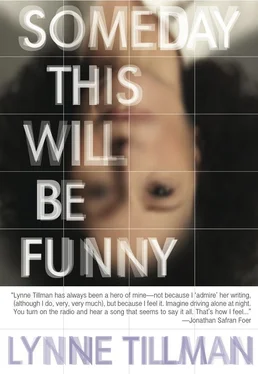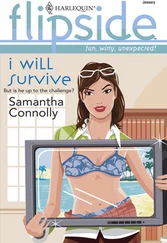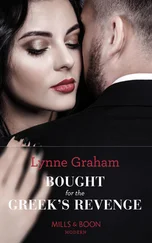Dear Ollie,
It’s been a long time. I think of you sometimes, and I know you think of me. I take a perverse satisfaction in that, even in the jaded ways you disguise me in your so-called fictions. I really don’t care. But I just read your “manifesto against the past.” No one “votes for guilt.” I also have “funny mental pictures” of that mansion we lived in on the Hudson. It wasn’t “haunted,” except by an unghostly Timothy Leary. Everyone said he dropped acid there. Everyone said they used to have wild parties. Even back then the term wild parties bothered me. No one ever gave details.
You and I were the only non-psych students living in the mansion. You and they were older, graduate students, but they were all research psychologists and thought everyone else was crazy, so they devised experiments to prove it. There was that one sullen guy who worked with rats. He had a big room near mine. I used to look in as I passed it. He kept his shoes under the chair of his desk in a certain way, everything in his room had a specific order, and if his shoes were moved even a quarter inch, he went crazy.
Remember when he drove his car into a wall? Then he disappeared. Remember it’s my past, too, you want to “throw into the garbage, to be carted away by muscular men and sent floating on a barge to North Carolina.
One night, you brought a friend home from Juilliard, a fellow student. If you recall, our dining room had dark walls and no electricity. We ate by candlelight — there were many candles in different states of meltdown on the long table that night. About ten, I think.
Before dinner, one of the research psychologists suggested it’d be fun to put blue vegetable dye in the mashed potatoes. Your friend wouldn’t know. We’d act as if the potatoes weren’t blue, just the usual white, and even though your friend might protest and insist they were blue, we’d keeping insisting they were white. We’d just pretend he was crazy for thinking they were blue. We cooked this up in the kitchen. When you came in with him, someone took you aside and told you. You went along with it. Everyone has a streak of sadism, one of the psych guys said.
I don’t remember who brought in the potatoes, we all participated, though, and then we all sat down around the big wooden table. The blue mashed potatoes were served in a glass bowl. Even by candlelight, they were bright blue.
We passed the food. When the bowl of blue potatoes reached your friend, he reacted with delight. Blue mashed potatoes, he said. Someone said, They’re not blue. Your friend said, They’re not? They look blue. Someone else said, No, they’re not. You were sitting next to him.
The potatoes kept going around. Your friend said, again, They really look blue. Everyone acted as if nothing was happening. Your friend kept looking at the bowl. He became visibly agitated. He said, They look blue. Someone said, Maybe it’s the candlelight. The flames have a bluish tinge. Your friend kept looking, squinting his eyes. Then he insisted, They look blue to me. Someone said, with annoyance, Would you stop it? They’re not blue. Your friend turned quiet. He kept looking, though, and we all kept eating.
The coup de grâce, I guess you’d call it, was dessert. In the kitchen, someone decided to dye the milk blue. The cake, coffee, and blue milk were brought to the table. We served the blue milk in a glass pitcher. No one said much as the pitcher went around the table. Your friend watched silently. When it came to him, he stared at the pitcher and poured the blue milk into his coffee. This time, he said nothing. Nothing. At that point I ran into the kitchen. I couldn’t control myself.
Later, you told him. After dinner, when you were alone with him, you told him. But I’m wondering, after all these years, did he ever forgive you? What happened to him? Does he still play the trombone?
You were good, Ollie. But somehow, in “regurgitating the past and moving on,” I’m “the reckless prankster” whose “promiscuous heart” you broke. The only thing in that house you ever broke was your musician friend and crazy Roger’s green plates.
Whatever,
Lynne Tillman
NEW YORK, NEW YORK
But There’s a Family Resemblance
There’s a story in my family about Great Uncle Charley, who didn’t know, until he was eighteen and married Margaret, that women went to the bathroom. It’s always told with that euphemism. My father, whose uncle Charley was, told it to me when I was thirteen, in a father-son rite of passage, his three brothers told their sons and, later, even their daughters, when they loosened up about girls.
When Charley and his brothers were kids, they made up their own basketball team in the Not-So-Tall League, they were all under 5’ 8”. They even had shirts made up; there are six photos of that. I’m named after Great Uncle Charley, they say he guarded like a wild dog. My dad’s generation is taller, mine even taller, except for my twin sisters. They’re short, in every snapshot they look like dwarfs. I pored over the family albums starting when I was a kid; I think it was because I was the youngest and needed to get up to speed fast. I knocked into furniture all the time, too, because I raced around, not looking where I was going, running from everything as if a monster would get me. I’m still covered in bruises.
When I think about Great Uncle Charley’s shock at seeing his blushing bride, Margaret, on the can for the first time, I can visualize it, like a snapshot, but I never knew him, he died before I was born. They say you can’t know the other, you can’t know yourself, and sometimes you don’t want to know the other or yourself. I’m sick of trying and failing. But when I imagine my namesake, I can see a smile and a robust body, because of the family pictures, and I always ask myself: could Uncle Charlie have had any kind of a sex life after that?
I don’t know why they named me after him, I’m not like him, according to my mother, but I feel implicated in his sexual ignorance. Families do that, implicate you in them. There are the twins, and one boy ahead of me, he’s the oldest, and we’re separated, oldest to youngest, by six years, so my mother was kept busy, but my father was the boss at home and in the world. He owned a paper factory, and I developed a love for paper, because he’d bring home samples; I liked to touch them, especially the glossy kind, photographic paper, which I licked until one day my mother shouted, “Stop that. You’ll get cancer.” So I stopped.
After Charley died, a terrible secret exploded on Aunt Margaret, who had a near-fatal heart attack and became an invalid, and then she died when I was ten. My parents still won’t tell me what happened. Neither will Stella, Charley and Margaret’s only daughter, tall and willowy, and strangely silent about everything. Maybe she doesn’t know.
I have a doctorate in cultural anthropology and am a tenured associate professor — the big baby can’t be fired, my brother likes to joke — and teach my students that a family’s implicit contract is to keep its secrets. They’re essential to the kinship bond, which offers protection at a price — loyalty to blood and brood. What happens in the family stays there: no obedience, no protection. I use various media to explain certain phenomena and enduring characteristics, as well as new adaptations, of the American family. For example, Mafia movies succeeded, after the family was hammered during the 1960s, by promoting oaths that, like marriage, were ’til death do you part, while guilt and criminality occurred only by disregarding the Family, not the law. The movies glorified the thugs’ loyalty to the clan, but HBO’s The Sopranos portrayed mob boss Tony Soprano’s sadism so graphically that, Sunday by Sunday, the viewer’s sympathy was shredded. But other genres will fill the bill, there’ll be no end to war stories for an age of permanent war, and, with the cry for blind patriotism, an American’s fidelity to family can be converted into an uncritical devotion to country.
Читать дальше












